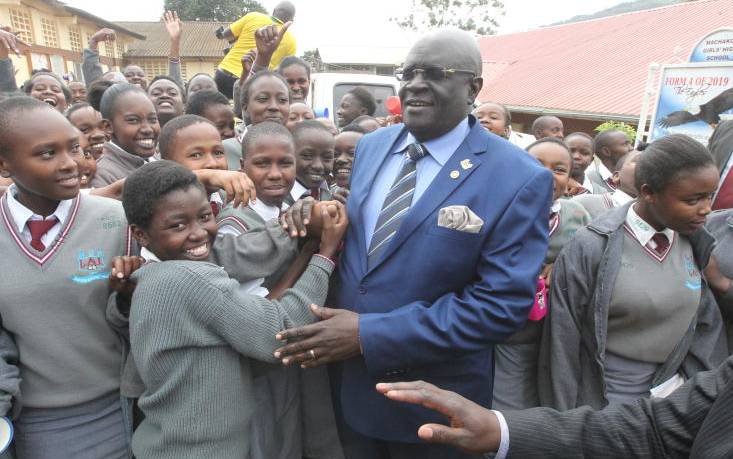×
The Standard e-Paper
Stay Informed, Even Offline

Education CS George Magoha with Machakos Girls High School students in January. [File, Standard]
Whether KCPE examination will be retained or scrapped now rests with Education Cabinet Secretary George Magoha.